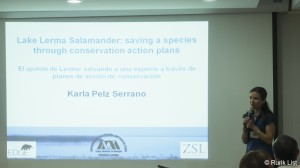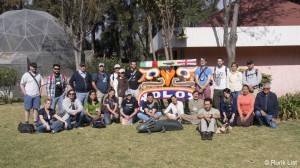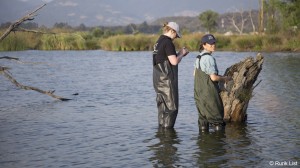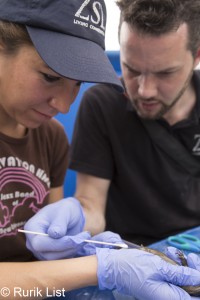From March 24th to the 28th 2014, I attended the workshop on “The critically endangered Mexican Axolotl (Ambystoma mexicanum) conservation programme: ecological health in practice”. The aim of this workshop was to bring together all the experts working on the Mexican Axolotl to have an update of what has been done towards the recovery and conservation of the species, and to determine what else needs to be done to reach such goal.
During the first two days of the workshop we had presentations of the leaders on Mexican axolotl research as well as of leaders in amphibian conservation. This was to have a quick update about the knowledge that we have so far about the Mexican Axolotl. The next three days were dedicated to review the conservation action plan for the species to decide what has been done so far and what still needs to be done. At the end of the 3rd day the participants in the workshop wrote a statement addressed to all stakeholders involved in the Mexican Axolotl recovery and conservation, to inform them about the situation of the Mexican Axolotl and the issues that need to be tackled in the next 5 years to ensure the conservation of the species.
I was accepted to participate in the workshop by giving a presentation about my EDGE research project and by being part of the working groups. This was a great opportunity to meet experts working on a different species of Ambystoma and to let them know about my EDGE research project. I got really good feedback for my project and learned how to organize and conduct a workshop with scientists and other stakeholders. I will be able to apply all this new information into the conservation action plan of my EDGE species, Lake Lerma Salamander (Ambystoma lermaense).
After the workshop, Ben Tapley and Helen Meredith from ZSL came with Rurik List (my supervisor) and myself to one of my field sites in Lake Lerma. We conducted a pilot survey to trap Lake Lerma salamanders (Ambystoma lermaense) so Ben could teach me how to handle the salamanders and do the screening for diseases. This was a great opportunity for me to learn from an expert in amphibians, to test a type of traps that I might be using for my research and to talk to Helen about different social issues I might be facing with the communities around Lake Lerma.



